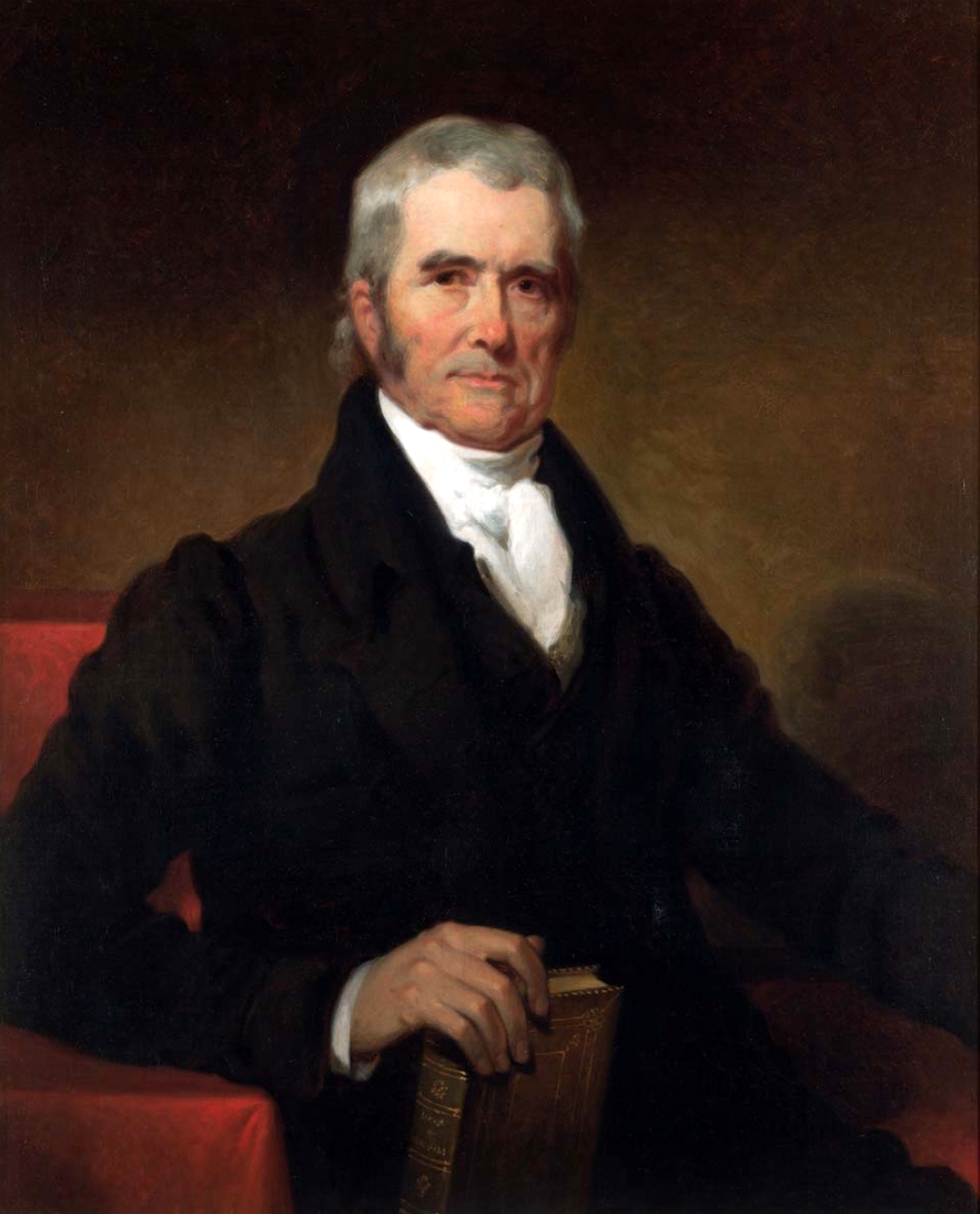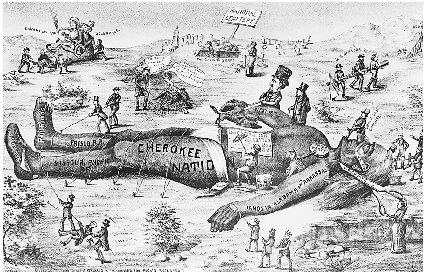
In this case, Chief Justice John Marshall establishes 'special circumstances' clause and forges the concept of 'domestic dependent nations."
This case - and
Worcester v Georgia, which came a year later - were
brought about by the refusal of southern states, notably Georgia,
to recognize either federal authority over Indian affairs, Indian
title to land, or the supremacy clause of the
Constitution.

A cartoon lampooning the state of Georgia after the
Cherokee Nation v. Georgia case was decided by the U.S. Supreme
Court.
By all
accounts, these two cases "were the central fury" of one of the
greatest constitutional crises in the history of the nation.
Certainly, this was the "most serious crisis in the history of the
high court" up until this time. As passions intensified, the
former president John Quincy Adams wrote: "the Union is in
the most imminent danger of dissolution…the ship is about to
founder." One writer has neatly summarized the crisis this
way:
"The Governor,
legislators, and judges of Georgia, publicly dared the Supreme
Court to interfere; and the President of the United States, who had
encouraged - or at least winked at - this outrage, now seemed
prepared to stand by and watch the state defy the Constitution,
laws, and treaties of the United States."
The president
who was willing to defy the high court was Andrew Jackson.
Jackson made it clear to Congress that he had no use for Indians or
federal protection of Indian tribes, regardless of his oath of
office, an oath that bound him to the contrary. He wrote the
governor of Georgia, Wilson Lumkin, "By some strange infatuation
seems to prevail among these Indians. That they cannot remain
where they are and prosper is attested as well by their actual
condition as by the whole history of our aboriginal tribes.
Still they refuse to adopt the only course which promises a cure or
even alleviation for the evils of their present condition."
http://en.wikipedia.org/wiki/Worcester_v._Georgia
As an Indian
fighter and treaty commissioner who used bribery and extortion as
his principle tools for swindling the tribes out of their lands,
Jackson had much to do with creating that present condition.
Those who watched him work in treaty councils said that no tool of
deception, no lie or fraud or swindle, was beneath him.
Related People
Related Events
Related Flashpoints